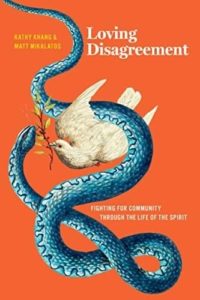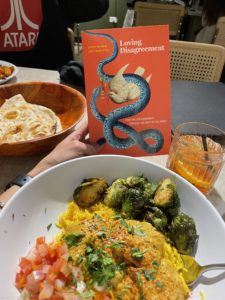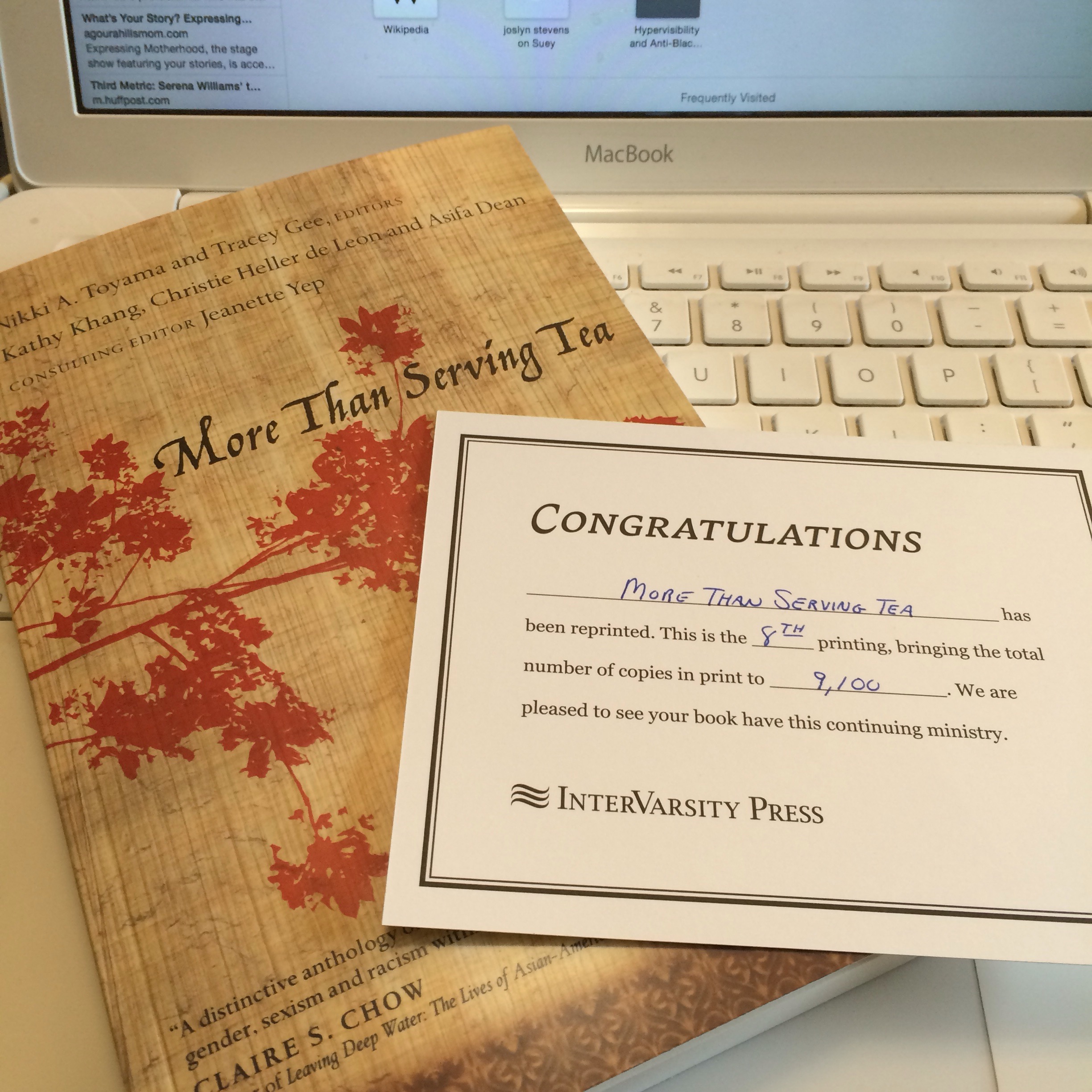My Dear Readers,
I have a book, written with my friend Matt Mikalatos, that hits the shelves October 17. The process of seeking endorsements – the blurbs on the back, inside, and sometimes on the cover – began a few weeks ago. A PDF of our edited but not typeset manuscript was sent/is being sent to leaders in the Church – progressives, conservatives, authors, pastors, organizational leaders, etc. Because our book, Loving Disagreement: Fighting For Community Through the Fruit of the Spirit, is about engaging in disagreements we are intentionally looking for people with a variety of theological and political views, representing the diversity of the Church. I suspect even I may be surprised at the endorsements because hopefully some will come from people I disagree with but believe in book.
Recently the topic of book endorsements, particularly within Christian publishing, has come under scrutiny because of a soon-to-be published book containing dangerous theology and uncomfortably weird analogies was endorsed by several prominent authors and pastors. Their endorsements raised questions about those blurbs and the process of vetting both the book and the blurb.
I’ve written elsewhere about Christian publishing – how that process played out for me and how it could play out for other aspiring authors. I thought I’d add my one cent here about the game of endorsements.
It’s a business and a ministry and a business
Please remember that Christian publishing is still a business. Even if the publisher is the publishing arm of a non-profit, book publishing is a business.
So when it comes to endorsements I have found it complicated. As an Asian American female Christian author, I am often asked if I would read a manuscript and offer an endorsement. When I first started down this road of Christian publishing almost 20 years ago, Twitter + IG did not exist. Smart phones did not exist. But that did not mean Christian authors weren’t building platforms. They were blogging and building email lists. They were speaking at conferences that kept getting bigger with more stage production and building email lists. So when five completely unknown Asian American women were getting ready to send More Than Serving Tea out into the world, we were asked to think about prominent Asian American church leaders and academics to give our book credibility and possibly connect us to more readers and networks.
In this recent situation I have been reading a lot of comments about how endorsements are an awful game and authors and readers shouldn’t play. I’m not sure how I can fully divest myself from the game when I am months away from publishing another book and waiting to hear from the more than two dozen folks we have reached out to for endorsements. I’m not sure how as a reader I can fully divest myself from not only turning to friends for recommendations but also looking at endorsements to see if others I respect have signed off on a book I’m thinking about reading. I’m not going to only trust the librarians’ or a pastor’s recommendations if the librarian or pastor doesn’t read books written by authors of color. As a reader, I look for endorsements from other authors and leaders of color, particularly women of color.
But as an author, I have learned that the game is also networking. Don’t roll your eyes. We all do it. How else do you make friends? How do you find out about summer camps for your kids or possible job leads when you’ve had it with your current boss? How do you find a church in a new community? You lean into your network. And as an Asian American female author, my network and my own platform carry a different weight and carry me.
Let Me Explain and Ask a Few Questions
I know that many of you started following me back in 2016 after authors like Scot McKnight and Rachel Held Evans blurbed about More Than Serving Tea on their own blogs. Now I have no idea if those blog posts generated sales, but for me as an author their posts opened up networks. Scot and Rachel became people I considered friends and allies. Scot taught me about honoraria and how to ask for what I deserved and needed. Rachel connected me to possible agents and gave an endorsement for my book Raise Your Voice. That came about as a result of the game.
But what I have found is that when I, as an Asian American female author, endorse a white author’s book I am offering a level of credibility. In the crudest way possible, my endorsement can be a stamp of Asian American approval. I have consistently turned down requests for endorsement from white authors I do not know. My priority is to endorse women of color, especially new authors, because the game wasn’t developed with us in mind. That is how I play the game. That is how I have chosen to leverage the little bit of influence and power I have and how I manage my time.
I am also relying on my network of authors of color and white authors I know and trust to be the first ones I ask for an endorsement. Why? I respect them. Their words carry weight and influence. As an author I believe in my work and I want as many reader to buy and read my books. I will always write, but writing a book? That’s a different beast than writing for myself and for the love of my craft. Personally, I want my books to sell and while an endorsement alone doesn’t sell books, it is a stamp of credibility. I don’t know what other ways an author has to signal to potential readers that our words are worth a chance. What draws you into a book? A beautiful cover? A provocative title? Do you read the endorsements? If so, why? If not, why not? Short of reading the book, what helps you, My Dear Readers, decide to buy and read a book?
And one day I may make a mistake. One day my beliefs may change (many of my beliefs have changed since my first book). One day the beliefs of an author whose book I endorsed may change. I’m not sure how to handle that except to say that is part of the risk we authors take when we send our words out into the world. They are frozen in time and do not move and shift with us, which is why we keep writing and we keep reading.
Back to the Game
Some folks have commented that endorsements can be bought. No one has ever tried to buy my endorsement, and I have never tried to buy an endorsement. I can’t imagine making enough money off of a book contract to give some of it away to buy two sentences, but I can see how that might happen. While many Christian authors have gone the way of Substack and other platforms, there was and might still be folks who sell posts on their blogs and platforms. Some of the “guest posts” on other spaces might be paid for, and you will never know. So if we are going to interrogate endorsements, and I think it’s fair, let’s look at it all, including the platforms. Again, I’ve never charged anyone for a mention of their book or for the chance to post on my blog. But I know for a fact there are Christian authors who “share” their platforms for a price.
Endorsements when done in a perfect world are written after the book is read and some of the outrage in this current situation involving a book about sexuality and the church is that endorsers may not have read the entire book. That is not my personal practice and I suspect many of us will make sure we spend even more time reading manuscripts before we write our endorsements, but I do have a request of you, My Dear Readers. Please consider how you also play into this game with your reviews (or lack of) and words on the interwebs. Did you love the book? Please tweet about it. Review it on Goodreads. Post a photo of the book with your pet. Ask your library to carry the book and then go check it out.
I’m not sure what if anything will change with endorsements, but I want to remind all of us that Christian publishing is still a business.

The cover. I love it.


